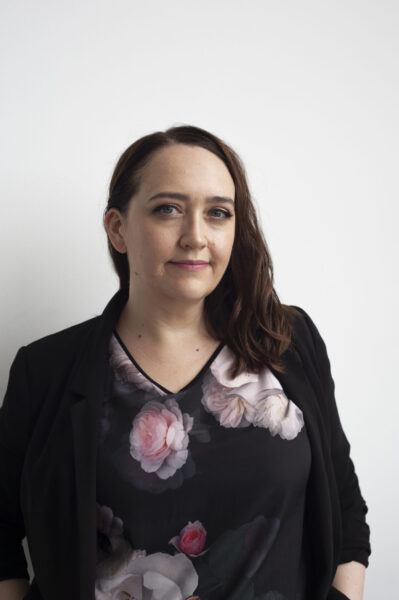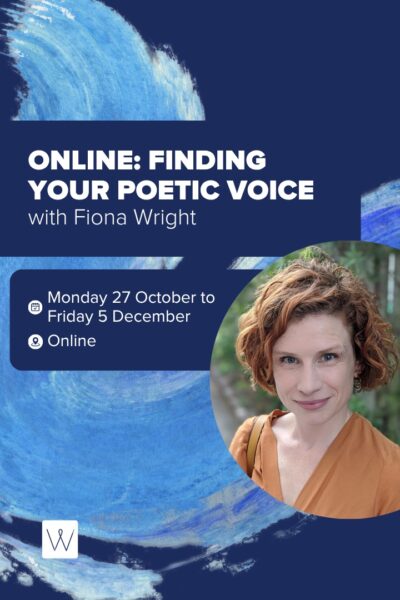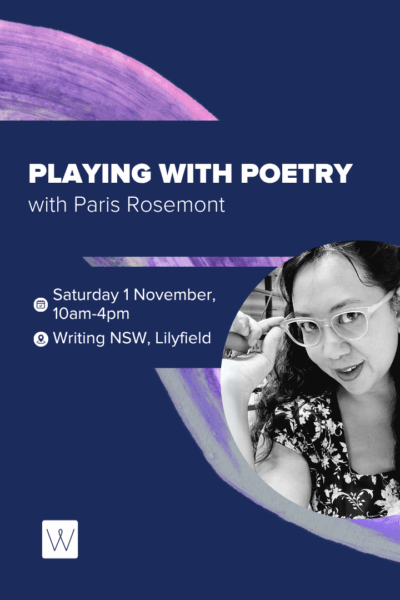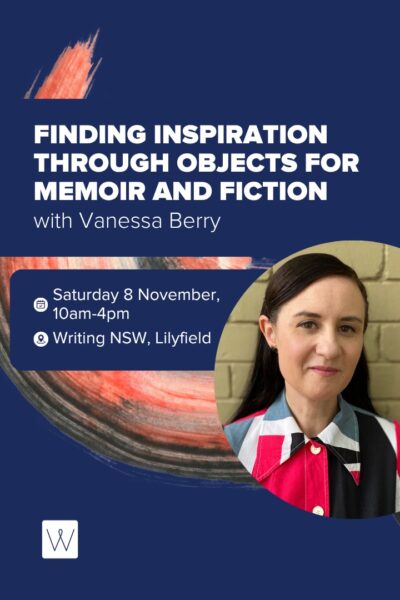Online: Year of the Novel
 Emily Maguire
Emily Maguire
Phase One: 1 Feb to 1 April 2021, online
Phase Two: 31 May to 31 July, online
Phase Three: 13 Sept to 12 Nov, online
Prices below are for all three phases
Full Price: $2620
Member: $1970
Conc Member: $1700
It’s too late to enrol in this course. Check out our other online courses here.
Make 2021 the year you finally write that book in this online course from acclaimed author Emily Maguire. Over three phases of eight weeks each, you’ll receive the tools, support and encouragement you need to plan, write and edit your novel.
Is this course right for you? Read our FAQ before enrolling>>
The course takes place on a user-friendly website designed specifically for writing courses, in combination with Zoom sessions. The Zoom sessions will take place on select Tuesday evenings from 6:30pm AET. Zoom sessions are optional but encouraged.
Course Overview
In the first phase, we’ll work on getting the bare bones of your novel down on paper (or screen). We’ll talk about generating ideas and planning, and look at the basic elements of fiction – point of view, voice, narration, character, plot, dialogue and setting.
In the course’s second phase we’ll put some flesh on the bones of your novel, looking at structure, style and theme, and going deeper still with character, voice and plot. As we approach the year’s half-way mark we’ll also talk about how to stay focused and motivated to see this thing through to the end.
Finally, in phase three, we’ll work on turning your very good novel into a brilliant one. We’ll cut the fat, plump up the too-lean bits, polish the language and ensure you have the knowledge and skills necessary to launch your novel into the world.
Throughout, Emily will use examples from classic and contemporary fiction and from students’ work-in-progress to explore the topics covered, and guest speakers will share their insights to further expand your understanding of how published writers do what they do.
At the end of the year, we’ll celebrate your accomplishments with a celebration at which friends, family, other writers and industry insiders can hear you read from your novel.
Please note that while the three phases are designed to build on each other, each may also be taken as a stand-alone unit. If you would like to enrol in Phase One separately, you can go here>>
To benefit from this course, you should be working on a novel. You can contact us with any questions before enrolling.
Phase One: Writing the bones
This phase is all about getting the bare bones of your novel down on paper (or screen). We’ll talk about generating ideas and planning, and look at the basic elements of fiction – point of view, narration, character, plot, dialogue and setting.
1. Introduction and planning
Setting goals, creating structure, identifying obstacles and figuring out ways to get past them.
2. Inspiration
Generating ideas, re-invigorating memories, stealing from life, stealing from history and making the old and tired, vigorous and new.
3. Story and plot
The difference between story and plot, and how you can make one into the other.
4. Character
In this session we’ll discuss what makes a character complex and compelling and what you can do to make you character as alive on the page as they are in your head.
5. Point of View
We’ll talk about the advantages and disadvantages of first, second and third POV, and which works best in what circumstances.
6. Showing and telling
Beginner writers are often told to ‘show, not tell’, but it’s not as simple as that. This week we’ll talk about the difference between showing and telling, and how to get the balance right.
7. Dialogue
We’ll discuss how brilliantly written dialogue can make your characters more believable, your plot more suspenseful and the world of your novel more vibrant.
8. Setting
Using the details of time and place to create atmosphere and solidify your invented world.
Each week during the course, a new lesson will be posted online. Participants will have the week to work through the content and post responses to exercises designed to put the theory we’re learning into practice. Participants will engage in giving and receiving peer feedback on writing exercises and receive some limited tutor feedback.
As you work through the lessons online, you’ll also be working offline to write your novel. To this end, you’ll be encouraged to set specific, achievable writing goals each week and have the opportunity to share your successes, discuss your challenges and help others with theirs, in our class forum.
There will be three optional Zoom sessions where participants can ask the tutor questions. There will also be a special Zoom event in which participants will hear from a guest speaker about their writing life. These online events will take place on the following Tuesday evenings, exact times TBA:
- 9 February: tutor Q&A
- 2 March: tutor Q&A
- 16 March: guest speaker
- 30 March: tutor Q&A
Phase Two: Muscles, guts, flesh and blood
Phase two is all about putting flesh on the bones of your novel, giving your story depth and force and vigour by looking at structure, style and theme, and going deeper with character, voice and plot.
1. Workshopping what needs to be done
Whether you’re back from the break after Phase One, or starting with us for the first time, this is a week to take stock of your work in progress.
2. Structure
Structure is what turns a collection of scenes into a satisfying novel. We’ll talk about scenes and story arcs, and look at some common structural templates.
3. Character: going deeper
Avoiding stereotypes, identifying archetypes and making full use of minor and supporting characters.
4. Advanced plotting: the relationship between character and plot
Is your character mostly pulled through events by twists of fate or is your plot driven by choices your character makes? We’ll look at how integrating character and plot makes both elements stronger.
5. Suspense, story questions and narrative drive
This is where we ask ourselves: how am I going to keep the reader turning pages? We’ll look at backstory, time-jumps, transitions and pacing.
6. Voice, tone and style
What is voice and how do you find, or develop, yours? What’s the relationship between voice and tone? We’ll talk about metaphor, imagery and finding the exact right word every time.
7. Point of view: going deeper
Who’s telling this story? What do they know and how do they know it? How does ‘head-hopping’ differ from omniscient POV? Answers to these questions and more as we dive deeper into POV.
8. Forging on
We’ve been working on our novels for over half the year by now. It’s time to talk about smashing writer’s block, pushing through frustration and dealing with doubt.
Each week during the course, a new lesson will be posted online. Participants will have the week to work through the content and post responses to exercises designed to put the theory we’re learning into practice.
In Phase Two there will be the opportunity to submit short extracts of your novel-in-progress for feedback from both tutor and peers. You’ll also be able to get support and discuss the challenges and delights of the writing process in our class forum.
There will be three optional Zoom sessions, where participants can ask the tutor questions, as well as two special Zoom events in which participants will hear from guest speakers about their writing life. Zoom events will take place on Tuesday evenings, exact dates TBD.
Phase Three: Nip, tuck, primp and preen
This is where we take a long hard look at your very good novel and figure out how to make it brilliant. We’ll cut the fat, plump up the too-lean bits, polish the language and do whatever else is necessary to ensure your novel is ready to face the world.
1. Revision and editing basics
Learning to read like an editor, and the difference between structural, line and copy-editing.
2. The Structural Edit
The Structural Edit is all about the big picture elements of your novel: structure, pace, characterisation, POV and plot.
3. The Structural Edit (continued)
Last week you conducted a modified structural edit. This week we figure out what do about the issues you identified.
4. Beginnings
It may seem a bit late to be talking about beginnings, but it’s often only once you’re close to the end that you can see where you should have begun! This week is all about making sure your novel starts where and how it needs to (know that you know where it’s going).
5. Endings
Endings are tough, but we’re going to be tough right back at them! We’ll talk finales, climaxes, cliffhangers, epilogues and the importance of thinking about theme.
6. The Line Edit
This week we look at overwriting: hunting down the redundancies and excess words taking up valuable space in our novels
7. The Line Edit (continued)
Continuing the Line Edit by looking at the rhythm and flow of sentences, metaphors and similes, cliches and clumsy constructions.
8. Where do we go from here?
The synopsis and cover letter, how to find help, dealing with rejection and more.
Each week during the course, a new lesson will be posted online. Participants will have the week to work through the content. There will also be the opportunity to submit up to 1500 words of your manuscript, once a fortnight, for feedback from both tutor and peers.
There will be three optional Zoom sessions, where participants can ask the tutor questions. There will also be two more Zoom sessions, where participants will hear from two professionals from the literary industry. Zoom events will take place on Tuesday evenings, exact dates TBD.
Participant Requirements
Internet access and confidence using basic computer software are essential for this course. Please read our FAQ before enrolling>>
This course is designed for writers of fiction. If you have a narrative non-fiction manuscript and are interested in enrolling in this course, please contact us to discuss.
Reviews
‘Emily is a great tutor. She generously gives from her extensive practical experience. She is sensitive to the different amount of experience in the group and the different genres they write.’ – David
More from Writing NSW
Check out our full range of in-person writing courses in Sydney, our online writing courses and our feedback programs to see how we can help you on your writing journey. Find out about our grants and prizes, as well as writing groups across NSW, and sign up to our weekly newsletter for writing events, opportunities and giveaways.





